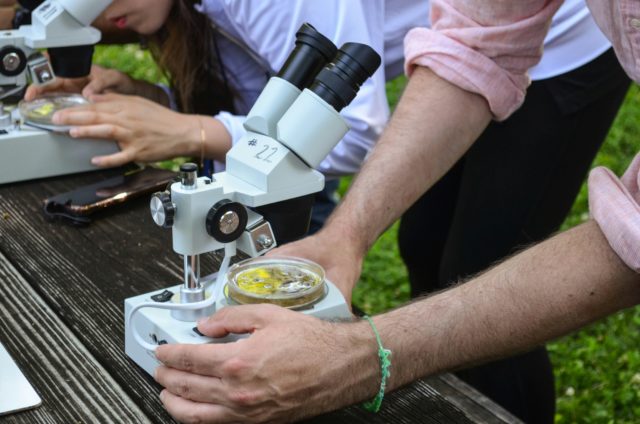News & Insights
How climate scientists are helping lawyers manage climate risk through contracts

What happens when lawyers need to be advisors, strategists… and scientists?
Lawyers manage client exposure to risk, they advise on mitigation, opportunity risk and document this in legal and governance documents. That risk includes climate risk. Clients rely on lawyers to identify, assess, and advise on climate-related risks, from supply chain disruption to evolving disclosure requirements.
Most lawyers are not scientists, so how can they be sure that the clauses they are using are robust in terms of both law and science?
This is where we at The Chancery Lane Project (TCLP) can help.
We recognise that managing climate risk effectively requires:
- the right skills to know when and how to use climate-aligned provisions to provide the best service to clients.
- legal content that is not only reliable from a legal perspective but is also grounded in rigorous climate science.
We therefore enhanced our quality assurance process by collaborating with a panel of climate scientists to review our glossary of legal definitions, which underpins our clauses.
The result of this approach is that our maintained legal content uniquely reflects three crucial subject matter expert perspectives: legal, commercial and climate science. This makes it trusted content that can be used in global transactions and across multiple sectors, even in a world of rapid machine learning and content generation.
Our core content includes glossary terms, guides and a prioritised subset of clauses.
How we collaborated with experts to meet the challenge
As a non-profit organisation with extensive networks and neutrality, we were able to:
- access exceptional climate science expertise on a pro bono basis.
- bring together experts who would perhaps not usually work together.
- generate collaborations with long-term value that are not ordinarily available to commercial knowledge houses.
The climate scientists who helped us work at centres of excellence in climate change research at the intersection of climate science, policy, law and accounting. Professor Matthew Brander, who has a PhD in greenhouse gas accounting, commented: “Climate contracting can be highly impactful in accelerating real-world decarbonisation.”
In total, eight scientists from five institutions contributed to the review of approximately 60 glossary terms, providing feedback on the ambition and accuracy of key definitions, such as ‘offsetting’ and ‘carbon footprint.’
We give a special thank you to the scientists who helped us: Kaya Axelsson, Dr Injy Johnstone, and Dr Hassan Sheikh from the University of Oxford Smith School of Enterprise and the Environment; Professor Matthew Brander from University of Edinburgh Business School; Dr Jesse F. Abrams from the University of Exeter; Dr Jaise Kuriakose from the Tyndall Centre for Climate Change Research at the University of Manchester; and Dr Chris Smith and Rosa Pietroiusti from the University of Brussels.
The review process: ensuring scientific rigour
One of our legal pro bono partners carried out an initial legal review, identifying the terms which would benefit from climate science input.
The scientists then reviewed the terms and provided feedback, including amendments, comments and suggestions. We were then able to translate this input into legal drafting and drafting notes to aid the understanding of the terms for users. The final step was to review our maintained clauses to make sure that they were aligned with the updated glossary terms.
Dr Hassan Sheikh, who has a PhD in Geological and Earth Sciences, reflected on the process: “My background in earth sciences and nature finance allowed me to appreciate how carefully the clauses embed the best available evidence on climate-related issues, while also balancing practical legal considerations. It is particularly important that this work introduces a form of ‘climate science quality assurance’ alongside the legal due diligence.”
Our work gives people confidence to use our content
Lawyers (and the organisations they advise) can rely on TCLP’s maintained content when managing their clients’ transition risks and decarbonisation goals with contracts and legal processes, knowing the rigorous quality assurance process it has gone through.
Our maintained glossary terms, guides and clauses are suitable for direct use in legal contracts, compliance and corporate governance documents, and procurement, or as high-quality inputs for AI-generated content.
Key takeaways
- The input demonstrated that our content was already strong from a climate science perspective, as there were no fundamental issues highlighted.
- The relationships we established with climate scientists will enable us to build on our network of interdisciplinary experts who can support us in creating legal content on climate, as we look to expand into other areas in the near term.
- Looking ahead, we plan to continue engaging with experts to maintain the accuracy, ambition, and quality of our legal resources.
- We will continue to increase involvement from interdisciplinary perspectives of users in the development of new clauses and guides.
Acknowledgments
Additional appreciation to the IKEA Foundation team who fund us and work with us. Their original comments, identifying some inaccuracies in our content from a climate science point of view, led to this review. We are indebted to them. Our content, and the impact it has, is better as a result.
How can you help?
Lawyers and organisations who are turning climate aspirations into action through contracts and legal processes – use our content and tell us about the impact you’re delivering: email us at: i[email protected].
Join our community: our work is not possible without the ever-growing legal, climate, and sustainability community we’ve cultivated. This link also enables you to sign up to our newsletter for fortnightly alerts about future projects: support us as we expand our work.
